Communities of Learning for Everyone
Blog Post 2: Creating a Personal Learning Network
This week’s prompt asked us to “explore how you can continue to develop your own skills, pedagogy and professional development on your own, back in your own library/classroom and environment. What strategies, tools, resources and networks can you implement to maintain your explorations and development? What are some of the ways that educators and professionals are connecting and sharing their learning? What can you do during this class and after it is over to maintain your connections and networks, to further develop your knowledge, experience and skills?”
One really nice thing about learning in the digital age is how easy, fluid, and ubiquitous it can be—for everyone. Sometimes I am so focused on helping others learn that I forget to pay attention to the amount of learning I do myself. I like this idea of Personal Learning Networks: it reminds me that it’s not just my students who pursue informal learning online; it homes in on the ways in which all of us are learning every day (or most days) of our lives.
Social Media
There is a huge range of comment available on Twitter from teachers, Teacher Librarians, social critics, professional organizations, authors, publishers, etc., often including links to further information. You can choose to just follow along, or you can participate on occasion, or regularly with passion and conviction. The mix you choose, of who to follow how and when to comment, is completely up to you. I would say this is one of the easiest and most pleasant ways to connect with a community of lovers of literacy and learning, and definitely one of the ones I will maintain.
 Local TLs
Local TLs
Social media allow you to follow national, international, and local Teacher Librarians. One of the best ways to keep in touch with what’s happening in your community is by following local Teacher Librarians on Twitter, and Twitter recommends others with related interests. I am always finding new connections to follow.
Teacher-Created Websites
You can find many teachers who maintain websites offering comment and insight into pedagogical issues of all kinds. One of my favorite ones is Cult of Pedagogy, run by Jennifer Gonzales. Her contributions are timely, wide-ranging, and exceptionally useful—reliably brief, clear, and intelligent. And she often includes links to other teachers and writers that lead to whole new worlds of ideas.
Jennifer Gonzales: https://www.cultofpedagogy.com/start-here/
Critics and Commentators
In this age of viral media material, when many dream of making their fortunes with the next big thing, there are still lots of intelligent, thoughtful people who are willing to share their thoughts, and who, in doing this, create communities of affinity. I find ‘Brain Pickings,’ published by writer Maria Popova is a source of inspiration for thinking about social trends, large and small. Her observations are usually based on her reading, though not necessarily the most recently published material. Here for example is a screen shot of her ‘Best [articles of] 2017,’ which range from musing about Seneca, the 1st Century CE Roman philosopher and his Letters From a Stoic, to a discussion of Black Hole Blues and Other Songs From Outer Space by astrophysicist Janna Levin, about the story of LIGO and the discovery in 2015 of gravitational waves. Whatever her topic, it’s always a worthwhile, thought-provoking read. I think it is important to maintain an open window into this wider world of ideas beyond pedagogical concerns.
Brain pickings: https://www.brainpickings.org/2017/12/28/best-of-brain-pickings-2017/
Professional Associations: BCTLA
The BCTLA is a source of information about Teacher Librarians and school libraries around the province. You can find out about professional development opportunities, resources and publications, awards (as in this screen shot), and even general information about BCTF activities. Following them on Twitter gives me regular updates about recent activities and interests.
Reading Lists
While it’s important to keep up with new practices in pedagogy and librarianship, the beating heart of libraries are the resources, the materials people actually read and there are lots of ways to keep in touch with this information.
Book Awards Lists Online
Book awards programs are an important way to keep track of new, high quality literature for children. Of the many book awards organizations out there, the Red Cedar Awards are based on the votes of BC children in Grades 4-7, and in addition to providing insight into what young people like to read, this has the added benefit of building a province-wide community of young readers. So not only does it keep me current, but it allows me to connect students to their community. https://www.redcedaraward.ca/
Although there is less opportunity for community participation, the Canadian Children’s Book Centre hosts a website which offers information on national book awards programs and finalists for quality children’s literature created by Canadians. http://bookcentre.ca/finalists-2017-ccbc-awards/
Book Reviews
There are many sources for high-quality reviews by librarians, teachers and other professional organizations, such as those from Booklist, a branch of the American Library Association. And again, following them on Twitter gives access to updates and information on a variety of topics of interest to Teacher Librarians and librarians in general. http://www.ala.org/aboutala/offices/publishing/booklist (by subscription)
Reader-generated reviews such as those you can find on Goodreads are also a source of information and at the same time, a way of participating in an online community of readers. Goodreads is a ‘social cataloging’ website owned by Amazon which “allows individuals to freely search its database of books, annotations, and reviews. Users can sign up and register books to generate library catalogs and reading lists. They can also create their own groups of book suggestions, surveys, polls, blogs, and discussions” (from https://en.wikipedia.org/wiki/Goodreads ). Whenever I am looking for books to read and recommend, this is one of my first go-to sites.
Book Publishers
Going to the websites of individual publishing houses is a way of staying current with the publications of particular ones. Here are two examples of high-quality publishing houses for Canadian and indigenous works respectively. Annick Press is a well-known publisher of children’s books, and Strong Nations is owned by Terri Mack, a long-time teacher of Aboriginal Education in Nanaimo. I search these regularly to find information about a given book, as well as to find out what’s new.
Booksellers
Although Amazon takes up most of the oxygen in the book selling world, there are still some booksellers in Canada that offer local and national perspectives on current publishing. Kidsbooks in Vancouver is a beloved, long-time resource that offers expert advice to a community of young readers, their parents, and local educators. Their staff is always ready to recommend or review, and helpful in searching for whatever topic you are interested in, no matter how obscure. https://www.kidsbooks.ca/
Chapters/Indigo too offers local stores where book lovers can browse to their hearts’ content, albeit with a less local point of view. And on their website, you can find lists of award-winning books from all the major book awards, including Canadian ones. Their staff is not as reliably knowledgeable, but their website is useful for fast look-ups. https://www.chapters.indigo.ca/en-ca/kids/childrens-book-awards/
Self-Directed Learning
I have developed virtually all of my ICT skills by working on my own and exploring the possibilities of particular programs and applications. I have taken several Adobe courses to learn about their software products, and I plan to take more in future. For other programs, when I see something I like online, I try to find out how it was made, and then do my best to imitate it. I have done this for years and am steadily expanding my knowledge base. I love it, and it’s something I will definitely continue doing. Here for example, is one of my current favorite applications—H5P—an online slide show program which you can either embed in your own website, or link to theirs. https://h5p.org/
Works Cited (Click here)
Works Cited
“Booklist, Book Links, Booklist Online, The Booklist Reader.” Advocacy, Legislation & Issues, 29 Jan. 2018, www.ala.org/aboutala/offices/publishing/booklist.
“Canadian Children.” Annick Press, www.annickpress.com/.
Chudy, Devika. “BC Teacher-Librarians’ Association.” BC Teacher-Librarians’ Association, bctla.ca/.
“Finalists Announced for the 2017 Canadian Children’s Book Centre Awards.” Canadian Children’s Book Centre, 17 Nov. 2017, bookcentre.ca/finalists-2017-ccbc-awards/.
Gonzales, Jennifer. “Start Here.” Cult of Pedagogy, 9 May 2018, www.cultofpedagogy.com/start-here/.
“Goodreads.” Wikipedia, Wikimedia Foundation, 5 June 2018, en.wikipedia.org/wiki/Goodreads.
H5P, h5p.org/.
Indigo Books & Music, Inc. “Award Winning Books for Kids.” Indigo.ca, www.chapters.indigo.ca/en-ca/kids/childrens-book-awards/.
Levin, Janna. Black Hole Blues: and Other Songs from Outer Space. Anchor Books, a Division of Penguin Random House LLC, 2017.
Mack, Terri. “Gilakas’la! Welcome, Come with All That You Are!” (Authors) – Strong Nations, www.strongnations.com/.
Popova, Maria. “The Best of Brain Pickings 2017.” Brain Pickings, 15 Jan. 2018, www.brainpickings.org/2017/12/28/best-of-brain-pickings-2017/.
Red Cedar Book Awards, www.redcedaraward.ca/.
“Share Book Recommendations with Your Friends, Join Book Clubs, Answer Trivia.” Goodreads, Goodreads, www.goodreads.com/.
“Vancouver Kidsbooks.” Vancouver Kidsbooks, www.kidsbooks.ca/.
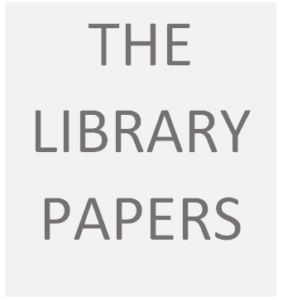
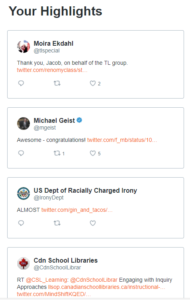
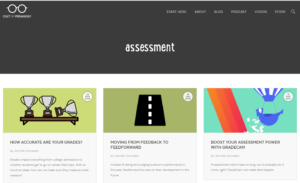

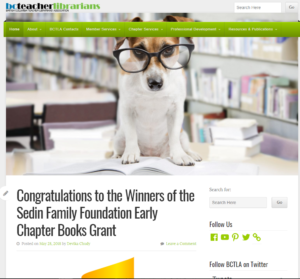

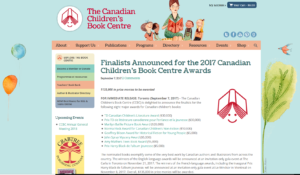

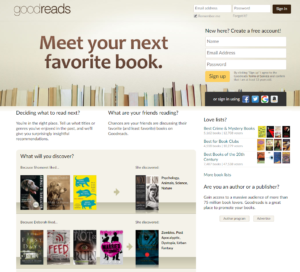
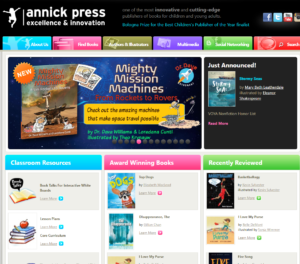
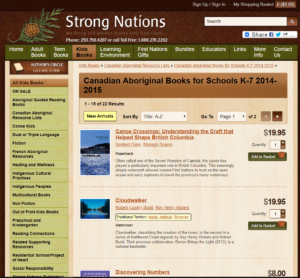
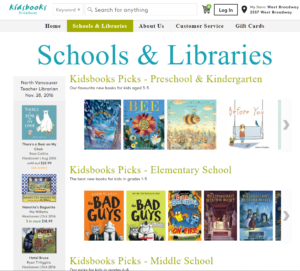
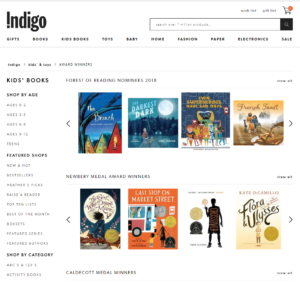



In your post, you have included some good discussion on current and future possible teacher-librarian professional development opportunities and networks. I like your added live links and images. I also particularly liked your section on self-directed learning and its focus on how you have developed your ICT skills. I wonder what other specific strategies, tools, resources and networks you might plan to use for Developing Your Own ICT Skills and Pedagogy?
Wow! Your blog NEVER disappoints. I really appreciated the links such as the “Cult of Pedagogy” one which I lost a huge chunk of time wandering through. 🙂 I may buy myself one of those shirts that says, “Yes, we are doing something today.” I am wondering if you have any recommendations for TLs from your district to follow on Twitter. I am very new to Twitter and have decided to try to utilize this when I become a TL.
Thanks for sharing such thoughful and information rich posts. Much appreciated.